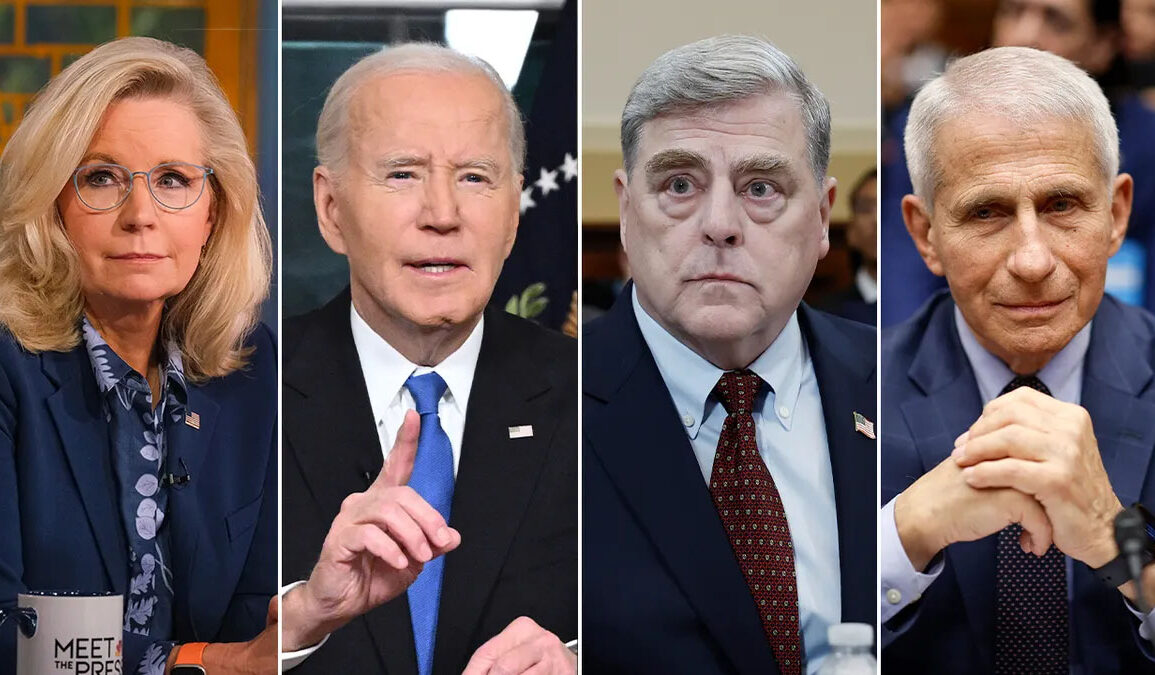Note: 15 minutes before the inauguration, Joe Biden pardoned his whole family.
In his final hours as president, Joe Biden issued an unprecedented series of pardons and commutations, benefitting nearly 2,500 individuals. While supporters claim these decisions reflect a commitment to criminal justice reform, critics argue they reveal a disturbing use of presidential power to shield political allies who have relentlessly attacked former President Donald Trump. The clemency decisions have ignited widespread controversy, with many questioning the true motives behind Biden’s actions.
Criminal Justice Reform or Political Favoritism?
Biden’s clemency included commutations for thousands of individuals convicted of non-violent drug offenses, a move he claimed was aimed at addressing inequities in sentencing laws. “Today’s clemency action provides relief for individuals who received lengthy sentences based on discredited distinctions,” Biden stated, referring to sentencing disparities between crack and powder cocaine offenses.
However, critics argue that this broad application of clemency is overshadowed by the more contentious pardons of high-profile political figures. The inclusion of Dr. Anthony Fauci, retired Gen. Mark Milley, and members of the January 6th House Select Committee has drawn accusations of political favoritism and an attempt to shield allies from accountability. These individuals, who were some of Trump’s harshest critics, have faced accusations of bias and overreach in their respective roles.
Shielding Trump’s Critics
Biden’s decision to issue preemptive pardons to figures like Fauci and Milley has raised significant concerns about the misuse of executive power. Fauci, who became a polarizing figure during the COVID-19 pandemic, faced allegations of mismanagement and political manipulation. Milley, meanwhile, drew ire for his public criticism of Trump and was accused of undermining civilian control of the military.
“These public servants have served our nation with honor and distinction and do not deserve to be the targets of unjustified and politically motivated prosecutions,” Biden said, defending his actions. Yet, many critics view these pardons as a deliberate attempt to prevent investigations into actions that could have undermined Trump’s presidency.
Milley expressed gratitude for the pardon, stating, “After forty-three years of faithful service in uniform to our Nation, I do not wish to spend whatever remaining time the Lord grants me fighting those who unjustly might seek retribution for perceived slights.” Fauci, who has denied any wrongdoing, claimed the threats against him and his family had become “immeasurable and intolerable.”
A Targeted Political Maneuver
Biden’s pardons extended to members of the January 6th House Select Committee, including Sen. Adam Schiff and former Rep. Liz Cheney. These figures were instrumental in investigating Trump’s alleged role in the Capitol riot, often delivering scathing critiques of the former president. Schiff, who previously opposed preemptive pardons, accepted the gesture but maintained his innocence. “The issuance of these pardons should not be mistaken as an acknowledgment that any individual engaged in any wrongdoing,” Biden clarified. Yet, critics argue that these pardons effectively shield individuals from scrutiny while casting doubt on their actions.
Republican lawmakers have fiercely opposed the clemency decisions. Sen. Rand Paul described the pardons as “a veil of deception” and pledged to pursue investigations into the recipients. “I wonder what criminal activity Biden is concerned they need a pardon from?” Paul questioned. Rep. Chip Roy called for congressional hearings, stating, “Let’s call them all before Congress and demand the truth.”
Undermining Accountability
The timing and scale of Biden’s clemency actions have prompted accusations of hypocrisy and partisanship. Critics argue that the inclusion of individuals who openly opposed Trump—many of whom were involved in controversial investigations—undermines the credibility of Biden’s stated goals of fairness and justice.
“Sneaking this through in the last hours of his presidency only makes them look more guilty,” said Rep. Doug LaMalfa. “What’s he so desperate to hide?” The broad use of preemptive pardons has also drawn comparisons to the controversial clemency actions of past presidents, such as Gerald Ford’s pardon of Richard Nixon and Bill Clinton’s pardon of fugitive commodities trader Marc Rich.
A Legacy of Division
As Biden’s presidency comes to an end, his clemency decisions leave a contentious legacy. While his supporters tout his actions as a step toward equity, critics see them as a troubling example of political expediency. “These are exceptional circumstances, and I cannot in good conscience do nothing,” Biden said. Yet, many argue that these actions do more to deepen political divisions than to promote justice.
Whether viewed as an act of compassion or a calculated maneuver to protect allies, Biden’s clemency record will undoubtedly remain a source of heated debate, raising questions about the proper limits of presidential power and the true motivations behind these unprecedented decisions.
NP Editor: This is much more serious than has been expressed in the media. some of these people used government resources to persecute a political opponent, dozens of lawsuits and criminal charges were filed against Trump, slander, libel, two impeachment proceedings based on fabricated charges. This is how powerful countries devolve into third world dicatatorships.








